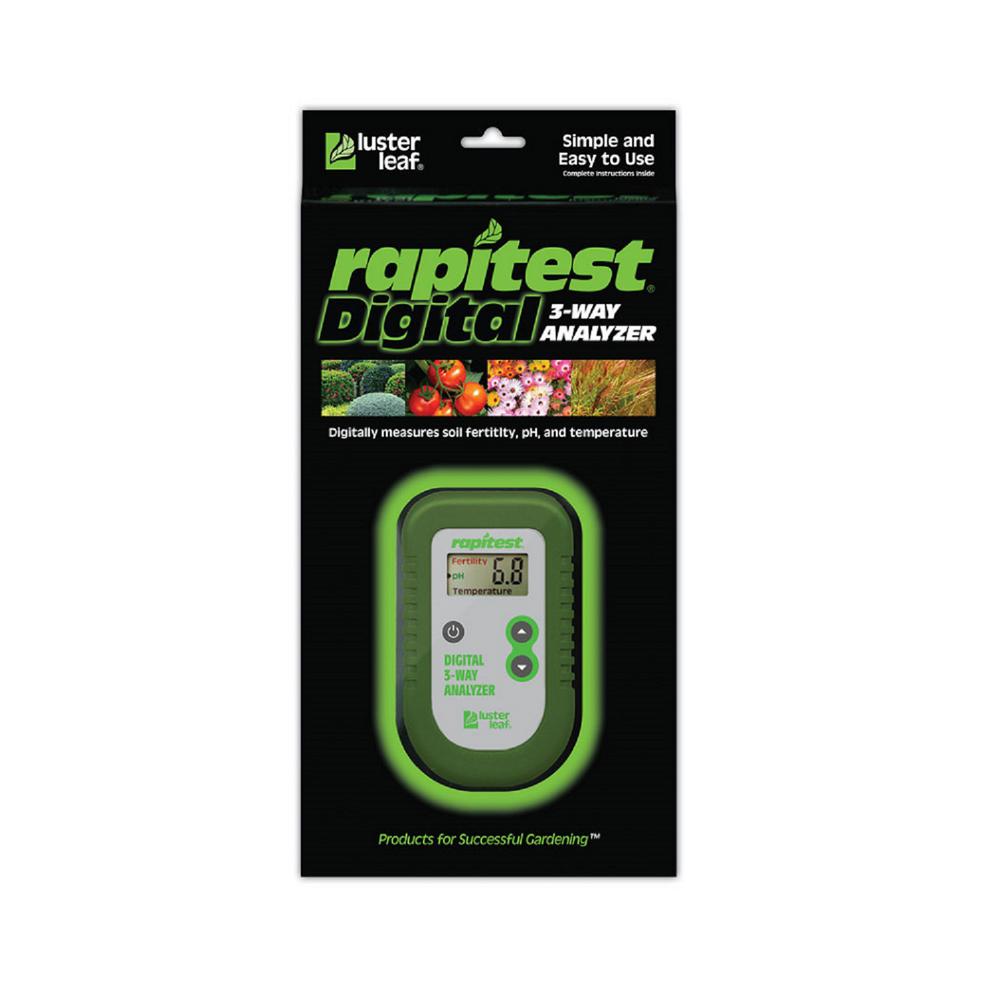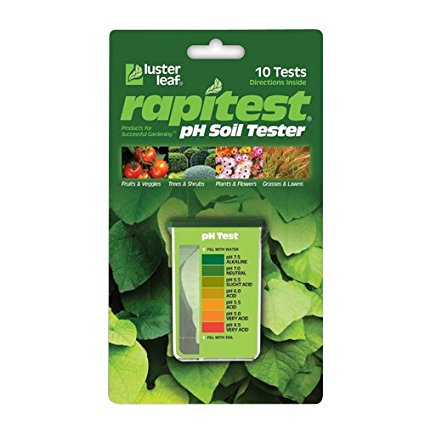Soil Testers
What is pH?
Soil pH is the measure of the acidity (sourness) or alkalinity (sweetness) of a soil. A simple numerical scale is used to express pH. The scale goes from 0.0 To 14.0, with 0.0 being most acid, and 14.0 being most alkaline. The value, 7.0 is neutral–i.e., neither acid or alkaline.
Why is pH important?
Soil pH is important because it influences several soil factors affecting plant growth, such as (1) soil bacteria, (2) nutrient leaching, (3) nutrient availability, (4) toxic elements, and (5) soil structure. Bacterial activity that releases nitrogen from organic matter and certain fertilizers is particularly affected by soil pH, because bacteria operate best in the pH range of 5.5 to 7.0. Plant nutrients leach out of soils with a pH below 5.0 much more rapidly than from soils with values between 5.0 and 7.5. Plant nutrients are generally most available to plants in the pH range 5.5 to 6.5. Aluminum may become toxic to plant growth in certain soils with a pH below 5.0. The structure of the soil, especially of clay, is affected by pH. In the optimum pH range (5.5 to 7.0) clay soils are granular and are easily worked, whereas if the soil pH is either extremely acid or extremely alkaline, clays tend to become sticky and hard to cultivate.
A pH determination (soil test) will tell whether your soil will produce good plant growth or whether it will need to be treated to adjust the pH level. For most plants, the optimum pH range is from 5.5 to 7.0, but some plants will grow in more acid soil or may require a more alkaline level.
How to correct pH.
Normally, lime or dolomite is used to increase the pH, or “sweeten” the soil. Lime contains mainly calcium carbonate and dolomite contains both calcium carbonate and magnesium carbonate. Ground limestone and dolomite are less likely to “burn” plant roots than hydrated lime and are therefore recommended for home use. The amount of these materials necessary to change the pH will depend on the soil. The greater the amount of organic matter or clay in a soil, the more lime or dolomite required to change the pH.
The best way to lower pH is with sulphur.
Best pH for our plants?
For all of our fruit trees, muscadines, grapes, nuts and most berry plants they require a pH of 6.0-6.5.
For Blueberry Plants, they will do best with a pH around 4.5. They need an acidic soil.
Having the proper pH in your soil is vital to the success of your plants. We offer several simple tools to ensure your plants will have the proper soil.
Showing all 4 results






